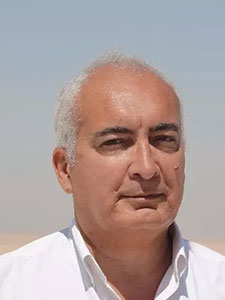EAGE Digital Talks: Interview with Conference Co-Chair Roman Spitzer
Why digitalization is the future? Conference co-chair Roman Spitzer, head of technology application, OMV Exploration & Production, talks about what we can expect at EAGE Digital 2022.
What is meant by this year’s theme – Leadership, Technology and Business of Tomorrow?
Digitalization has advanced more rapidly than any other innovation in history, enabling us with instant communication, generally enhanced connectivity and accessibility to information to take decision faster and more accurate. Not only the technological aspect that drives us today, but even more, the associated topics of changing business models (e.g., energy transition) and leadership styles (e.g., virtual teams) require special attention and new ideas. All three topics will be covered at this special event.
How would you describe the goal of digitalization, e.g., efficiency, cost saving, exploring and maximizing value of existing data?
Many organizations understand digitalization as a tool to save costs through increased efficiencies and project acceleration. This is partly true, it will save costs through less time spent on projects. However, the real strength of digitalization is to create optionality and opportunities through cutting edge technologies in combination with changed ways of doing business. The combination will allow us to make better analyses of our portfolios, make better choices about our investments and, ultimately, stay resilient to the globally ongoing changes.
For EAGE members attending which are the most relevant aspects of digitalization – machine learning, cloud, data lakes, AI, etc?
I think it is important to obtain a broad understanding of the complete petro-technical and digital challenges and excellency within our industry. Hence, machine learning, cloud, data lakes, AI, IT/OT, sensors, data science ideas, all of it is truly relevant. And on top of this, to envision and discuss future organizations, leadership styles and new ways of working – how digitalization creates value and will help us to stay a profitable and attractive industry sector.
How much of digitalization is new to geoscience and engineering professionals?
It depends on the time horizon. Starting my career as a geophysicist, I was waiting for automated data preparation and analytics for a long time. I was always frustrated about the time I had to spend preparing my projects and data until I could attend to my profession: subsurface characterization from seismic and well data.
Automation of tedious tasks is something that has significantly advanced during the last decade. Hence, data science and the maturity of machine learning products is good news to me. When you ask a young professional in the industry, for sure you would get a different answer. For them it is business as usual and they are looking at digitalization from a different, more mature and educated, perspective. Independent of industry experience, we will all agree that the development is increasing exponentially.
What is needed to prepare a new generation of digital
geoscientists?
It is not so much about what is needed for them it is more about how we can attract them to join our industry. The new generation of geoscientists is ready and they come with all their G&G and engineering knowledge and data science skills. What they need is an exiting career perspective in the oil and gas industry. We need to tell a story that goes beyond conventional oil and gas business towards petrochemicals and energy transition.

